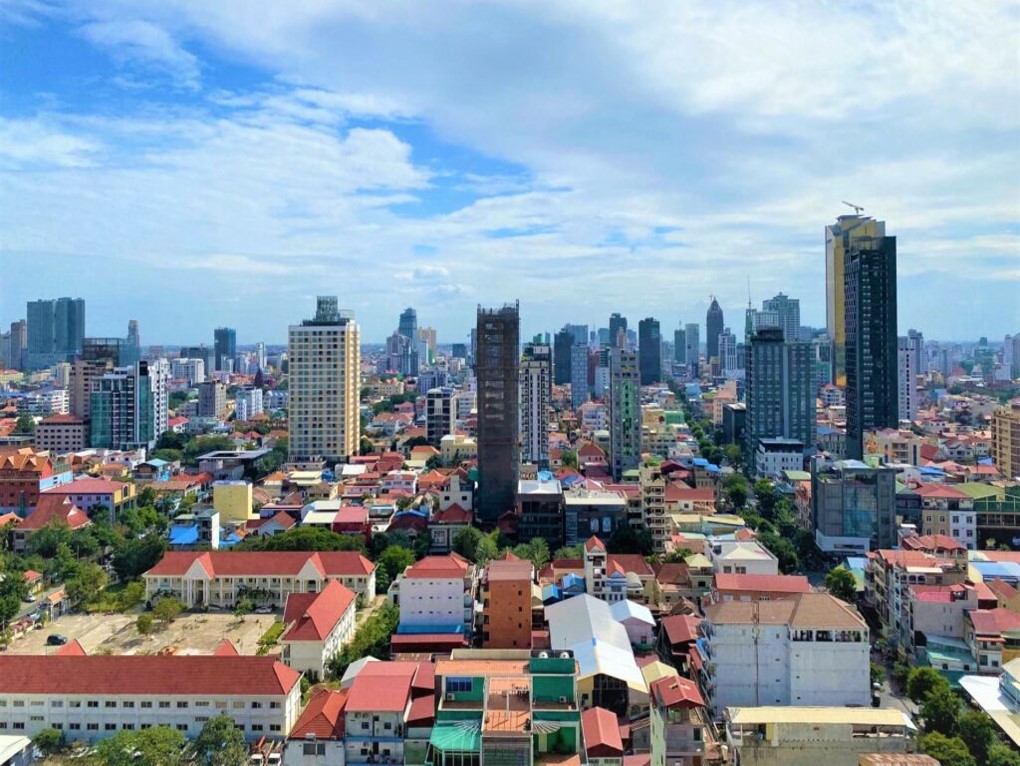Things you should know about Cambodia before investing
Cambodia has performed well on foreign direct investment (FDI) so far, three times better than predicted, which scored 3.6, becoming the top 25 in the world.1 The FDI reached an all-time high of 14.1% in 2012 and nearly reached the same level again in 2020, which was 14%.2 However, it declined and has been slow to recover after the outbreak of the Covid-19 global pandemic.3 At any rate, the forecast GDP growth rate will account for 6.2%, the 3rd highest in the region.4 Cambodia has stated its strong commitment to promoting the sustainability dimension during the pandemic.5 The new Law on Investment in the Kingdom of Cambodia (LoI) was introduced in October 2021 to create an open, transparent, predictable, and favorable legal environment to attract and promote domestic and foreign investment in Cambodia. The law provides many benefits to investors, including income tax exemption and customs duties incentives.6

The landscape view of Phnom Penh city. Photo by Open Development Cambodia, taken on 05 January 2021. Licensed under CC BY-SA 4.0.
Investing in Cambodia
The Council for the Development of Cambodia (CDC) is the only governmental institution registering all foreign and domestic investments in Cambodia. The CDC works closely with other governmental agencies to ensure that reporting and establishing new foreign investments is efficient and timely.7 CDC also provides online platforms that assist investors in registering and establishing their new investments effortlessly.8
Top investors in Cambodia
Remarkably, China was the top investor for the most registered FDI in 2021, with a sharing percentage of 48.2 % of the whole FDI inflow in Cambodia. Singapore and South Korea were placed second and third, with a shared portion of 8.3 percent and 8.1 percent, respectively, in 2021. So far, Japan, Malaysia, Thailand, the UK, the U.S., and Vietnam have also been among the leading investors in Cambodia.9
Cambodia became a Chinese partner long ago, accelerating in recent years as Belt and Road Initiative projects have taken place throughout Southeast Asia to develop infrastructure, trade relations, and local wealth. Between 2012 and 2017, China invested over US$15 billion in Cambodia on infrastructure such as roads/expressways, ports, and airports, and also invested another US$11 billion in the energy sector alone.10
What makes Cambodia unique in terms of foreign investment?
The Royal Government of Cambodia (RGC) has been working to develop international ties not only in the region but also with the East Asian nation and other countries worldwide. As an ASEAN member, all the member states must strengthen their relationship with other associations. Cambodia is well-integrated with its neighboring countries due to infrastructure and flight connections to major East Asian hubs. These favorable conditions make Cambodia an ideal "+1 market" for regionally active companies.11
The RGC has identified FDI as a critical component of the country's economic growth. Foreign-owned businesses can engage in almost all the same commercial activities as Cambodian-owned businesses.12 Cambodia has signed several free trade agreements (FTA) in the previous decades, including with China (01 January 2022)13 and South Korea (26 October 2021).14 It has become a key attraction for many countries, especially the region. Due to the presence of Special Economic Zones (SEZs) and tax incentive programs, investors may feel more at ease establishing their venture in Cambodia.15
Related to Foreign investors
References
- 1. Investment Monitor, “The countries that punch above their weight when it comes to foreign direct investment,” 12 July 2022, accessed on January 2023.
- 2. The World Bank, “Foreign direct investment, net inflows (% of GDP) – Cambodia,” 2021,” accessed on January 2023.
- 3. Investment Monitor, “Cambodia punches above its weight in attracting FDI,” 28 October 2022, accessed on January 2023.
- 4. Asian Development Bank, “Economic forecasts for Cambodia,” September 2022, accessed on January 2023.
- 5. Ministry of Information, “Cambodia Shares Experience On Sustainable Promotion At World Investment Forum 2021,” 19 October 2021, accessed on February 2023.
- 6. ASEAN Briefing, “Cambodia’s Law on Investment: What Foreign Investors Need to Know,” 16 June 2022, accessed February 2023.
- 7. Council for the Development of Cambodia, "What we do," accessed January 2023.
- 8. Council for the Development of Cambodia, "Key step to set up your business in Cambodia," accessed January 2023.
- 9. National Bank of Cambodia, "Financial Stability Review 2021," December 2021, accessed on January 2023.
- 10. ASEAN Briefing, "2023 Foreign Investment Opportunities in Cambodia," 19 July 2022, accessed on February 2023.
- 11. Italy in Cambodia," 10 Reasons to Invest in Cambodia," 07 March 2022, accessed on February 2023.
- 12. Seng Sreng, "A Study on Foreign Direct Investment, The Case of Cambodia," 2001, accessed on February 2023.
- 13. Ministry of Commerce People's Republic of China, "China FTA Network," 20 February 2023, accessed on February 2023.
- 14. Asia Regional Integration Center, "Cambodia-[Republic of] Korea Free Trade Agreement," 29 January 2022, accessed on February 2023.
- 15. Council for the Development of Cambodia, "Incentives & Schemes," accessed February 2023.

